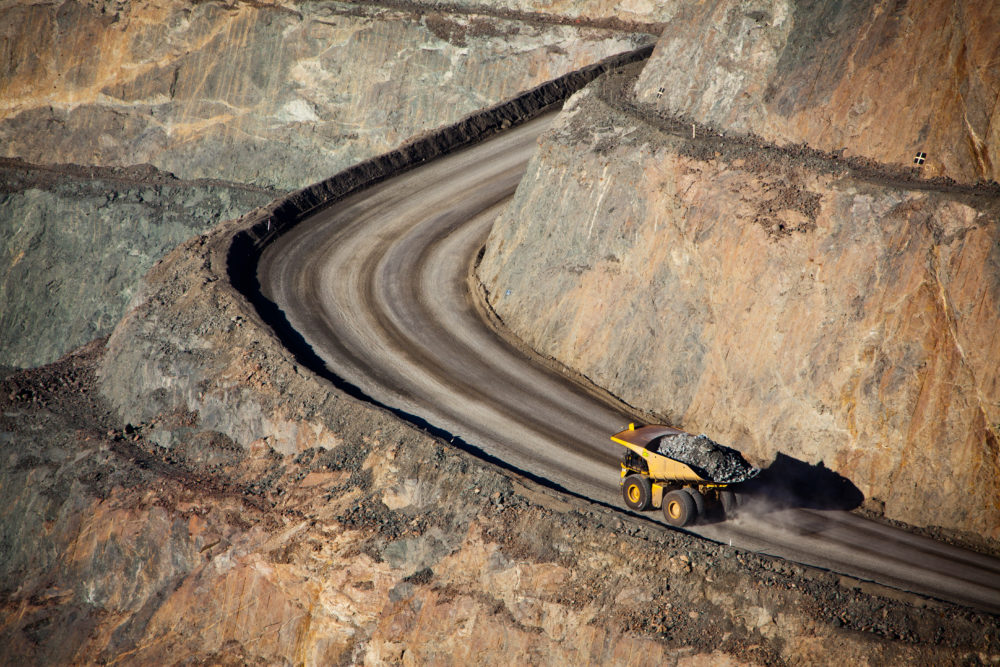Not that long ago I was with a major global mining company when the GFC hit. After much knee trembling the organisational leaders made a number of decisions, including the slashing of thousands of positions from the global workforce. In my WA Department the numbers were halved. The unfortunate reality was that within three months we were rehiring to fill the critical redundant positions that had prevented delivery of the services the organisation required. During that time we lost dedicated, knowledgeable, long-term employees, what we got in return were newbies that had to start from scratch. The nuances of global and local WA impact of the GFC had been lost.
The irony was that about nine months later after an internal engagement survey had shown that confidence in the organisational leaders had plummeted, the senior leaders were looking to blame factors such as the economy and the financial crisis. In my case, rather than blame external factors may be the leaders at the time should have looked to themselves and admitted they made knee-jerk decisions that caused a lot of people, even those that remained with the organisation, undue pain and resentment.
Isn’t it the case that in difficult and turbulent times, that is when our leadership “quotient” should be improving – as great leaders demonstrate real leadership and step up to the challenges they face.
Let’s imagine for a minute where we would be today if our sea-faring explorers had only taken to sea in calm and predictable weather, or when faced with stormy or turbulent waters they continually turned home or put to land. New discoveries and advancements would’ve been hindered, delayed or never made at all. Imagine further, if Columbus had continued to look towards shore rather than the horizon; or if Galileo had gazed to the ground rather than the stars, would we have made the discoveries or scientific advances that defined our being today.
One element that is critical for leaders when faced with difficult or turbulent times is resilience. By resilience I mean staying true to a belief or vision and continuing to strive to achieve the vision or goals in the face of a pessimistic or incredulous environment.
What is Resilience?
Resilience is regularly described as a personal quality that predisposes individuals to rebound in the face of adversity. Great leaders, do more than just bounce back—they continue to bounce forward.
Resilient leaders quickly take action that responds to new and ever-changing realities, as they maintain direction and the essential operations of the organisations they lead. They also remain optimistic and motivated to the long-term objectives, whilst continuing to learn and understand influencing factors that destabilise the status quo. They use resilience, knowledge and understanding to problem-solve and move mountains, rather than a U-turn or giving up the journey.
Great leaders lead with open eyes gazing intensely forward. Some leaders are so risk averse that they put on blinkers to avoid seeing the truth of precarious situations. Others are so pessimistic about any turn of fortune that they ignore opportunities for growth. A leader who pays attention to relevant data and remains resilient, recognizes both opportunities and threats of disaster. Such a leader monitors signals of flagging resilience in others and motivates perseverance and continued effort to the vision or strategic objectives.
WA’s Economic Future
At last weeks, 2014 CCI Annual Economic Breakfast, CCI’s Chief Officer of Member Services and Advocacy, John Nicolaou made a number of observations in relation to WA’s current and future economic position. Some of the key points mentioned in regards to a post mining boom WA economy include:
- Australia’s terms of trade have fallen 21% but still remains 63% higher than in the 90s
- Business investment is down 21% from its peak but remains 234% above its position 10 yrs ago
- However, WA’s exports are booming, increasing by $50 billion since 2008-09
- Consumers however remain pessimistic, with consumer spending down
- Business confidence is fragile and has remained in negative territory since 2012, due to high costs, political uncertainty and economic concerns
(source: CCIWA, www.cciwa.com, 02 October 2014)
- With WA having some of the lowest levels of consumer and business confidence in Australia, despite;
- A massive investment pipeline of $240 billion in projects still on the table;
- CCI’s leading index up 5.6% in the last six months as compared to just 1.9% in the previous six months; and
- CCI expecting growth of 4% in 2014–15 and 15–16, down from 5.1% in 12–13 and 7.3% in 11–12 but still to the long-running average of 4.2%
(source: CCIWA, www.cciwa.com, 02 October 2014)
What do we need from our leaders?
What do we need, in one word its, resilience. Resilience is a mindset that results in personal leadership practices towards taking extra care of business and people, including the leader, whilst taking well planned and considered action to new and changing realities. Resilience is often considered a personal trait, each of us born with a specific level of resilience in our DNA. However the events we face and the actions we choose can strengthen or compromise our resilience over time. Here are three suggestions for leaders to become more resilient.
Be more mindful
As Eckhart Tolle wrote in his best-seller, “The Power of Now”, being mindful means being totally aware. It is very easy to become unconscientiously over flooded by events and issues. Buddhist teachings alerts us to three stages of awareness; the first is when you have done something, then you become aware, it is looking back or reflecting. You have to move into it again. You missed awareness in the moment and you look at it again as you should have really done it. The second stage: you are doing something and you become aware. And the third stage: you are going to do something and you are aware. Only in the third stage will we be able to transform what happens to us rather than the normal reactive approach we so often see. The first two are necessary for the third, they are progressive steps.
During times of economic fluctuation, non-resilient leaders make cuts across the board without regard for the organisation’s mission or values, (as in my original case study). Leaders presenting themselves as victims of the economy, they cut corners on important initiatives. This creates vulnerabilities in the system, which often undermines success.
Continue to learn and grow
When things aren’t going well, some leaders make the dangerous mistake of believing they can’t afford to invest in professional development. Whenever top leaders quit learning, it usually means one thing: They believe they know everything they need to know. Organisations, however, are in a constant state of change, even more so when the economy is in flux. Responding to change always requires learning.
Resilient leaders who are happy and doing meaningful work make time for activities that revitalize them, as the famous Dr. Stephen Covey describes in body, heart, spirit and mind. Personal renewal or daily activities towards sharpening the saw, generates the energy leaders need to show up for demanding work.
Stay on the horizon
In the face of harsh realities and brutal truths, resilient leaders are optimistic but not naive. Optimistic leaders are still quite aware of undesirable trends—when they exist. However, these leaders find negative data compelling. Whereas pessimistic leaders react to harsh data about important initiatives by slowing down, quitting, or losing focus and energy, the same appalling information inspires optimistic leaders to action. They continue to focus on the direction and end goal, which in turn continues to deliver momentum and progress.
Coaching Leaders for Resilience
Resilience may be a highly personal characteristic, but as such, it’s a quality that individuals can choose to develop. Leadership coaching, a highly personalized strategy for developing leaders, is an ideal means for doing so. On the job, resilient leaders take advantage of good coaching, which gives them intervals for reflection during the throes of a demanding day, thus becoming more mindful. Less resilient leaders counter intuitively and forgo coaching sessions because they’re “too busy.” They suffer through the day with what amounts to grim determination that results in an unsustainable state of mind. By asking powerful questions during coaching sessions can foster greater resilience in times of discord. Good questions elicit ideas about resilience and inspire leaders toward resilient action that fosters greater resilience generally. Whether we will ever truly understand resilience one thing is for certain, we can choose to take action to become resilient leaders of resilient organisations.





